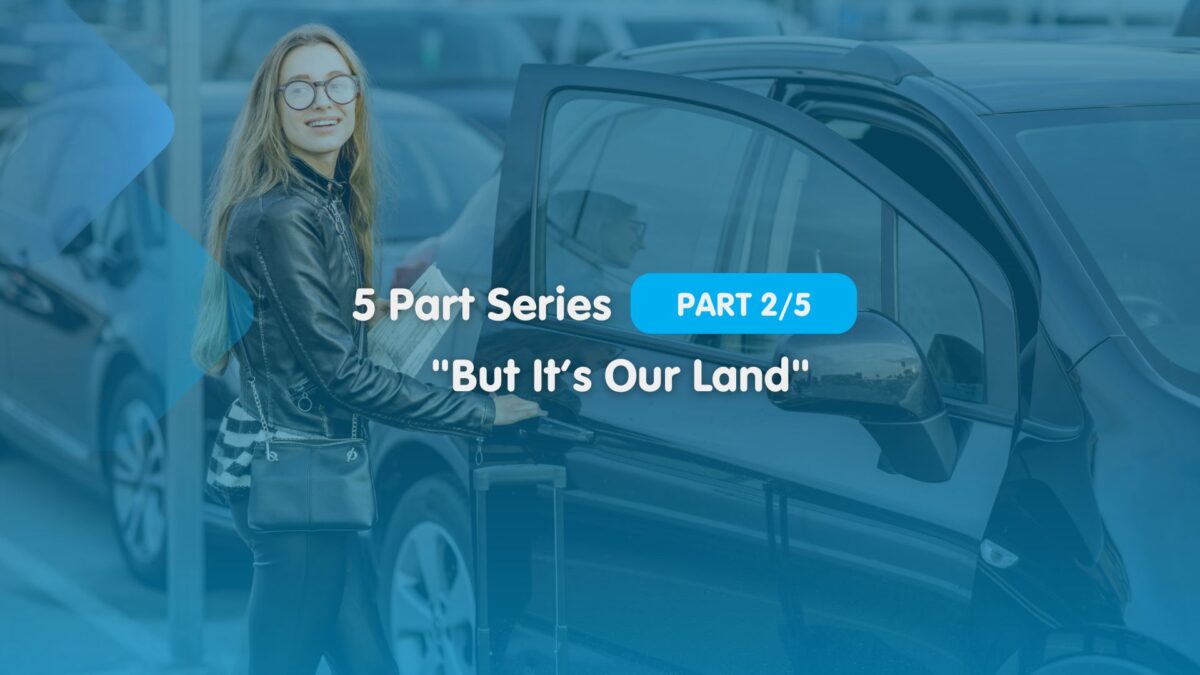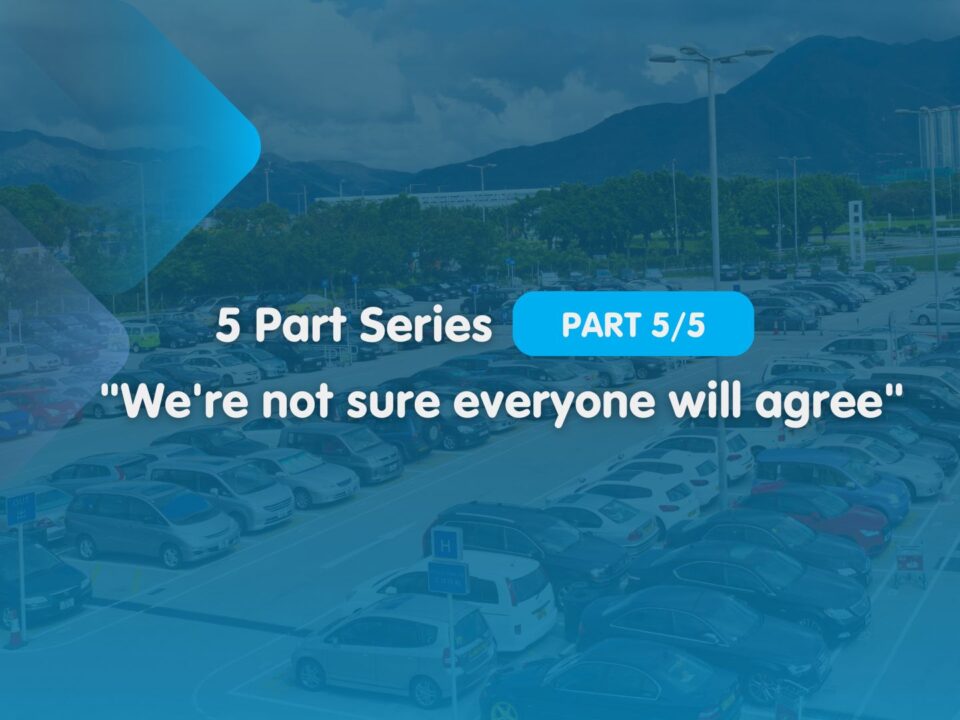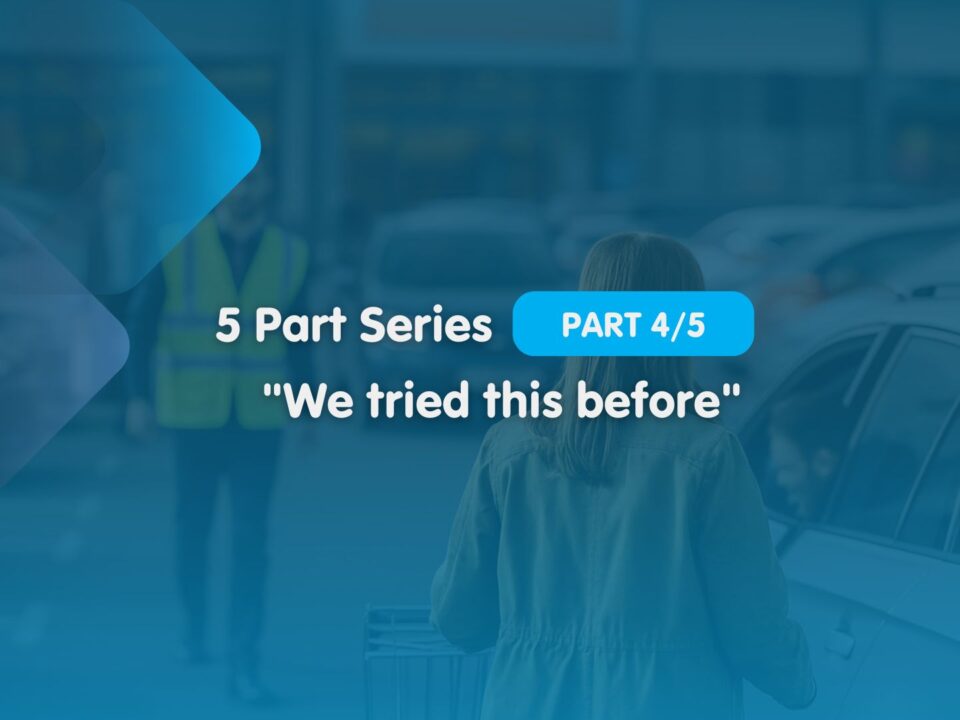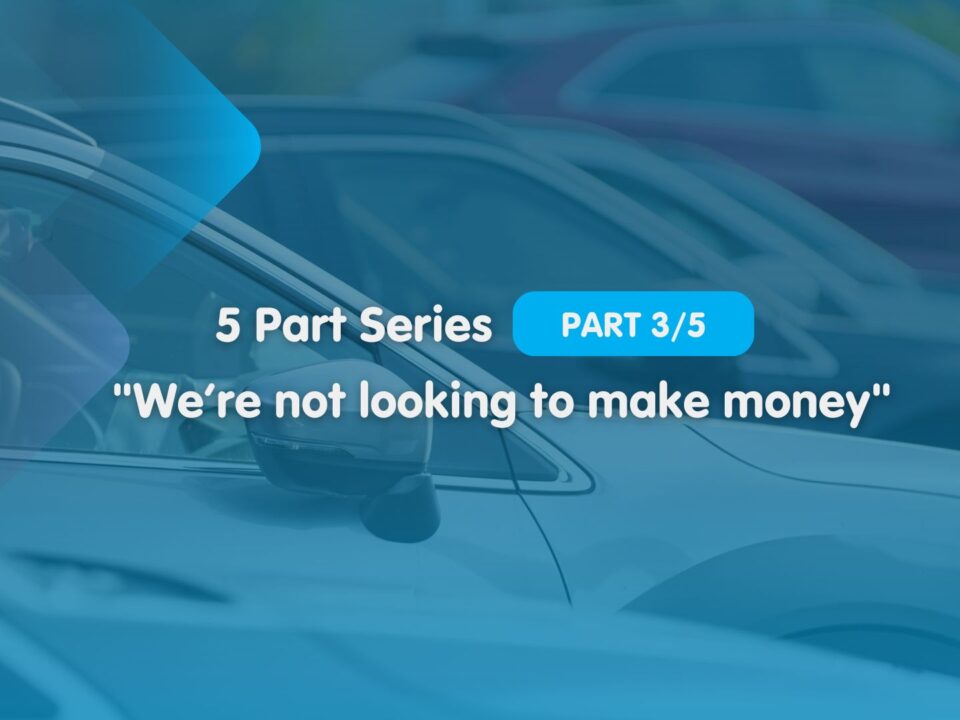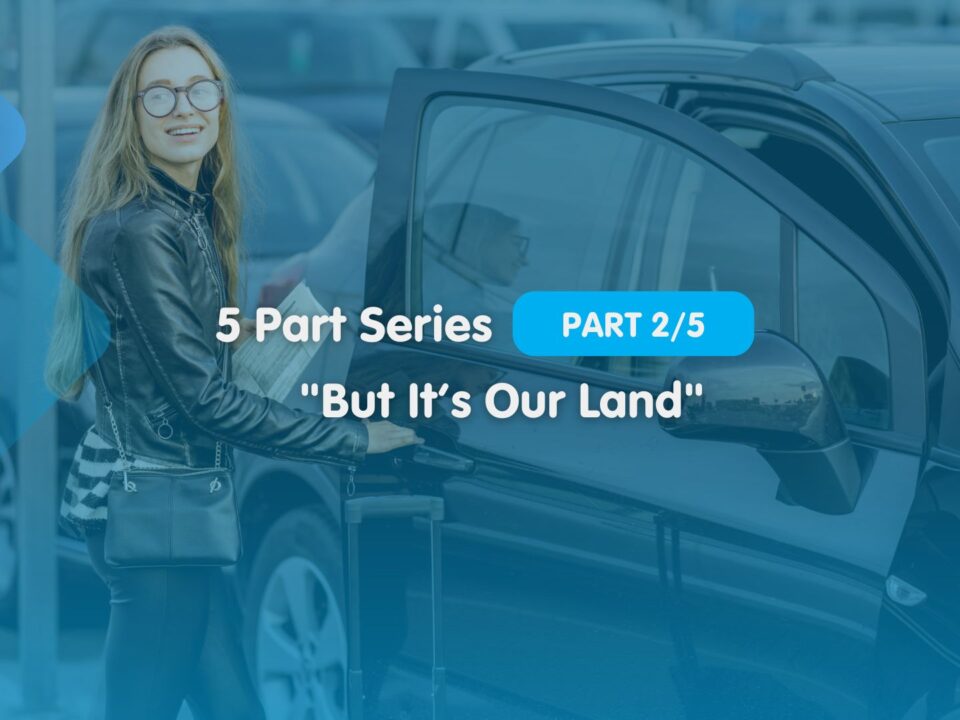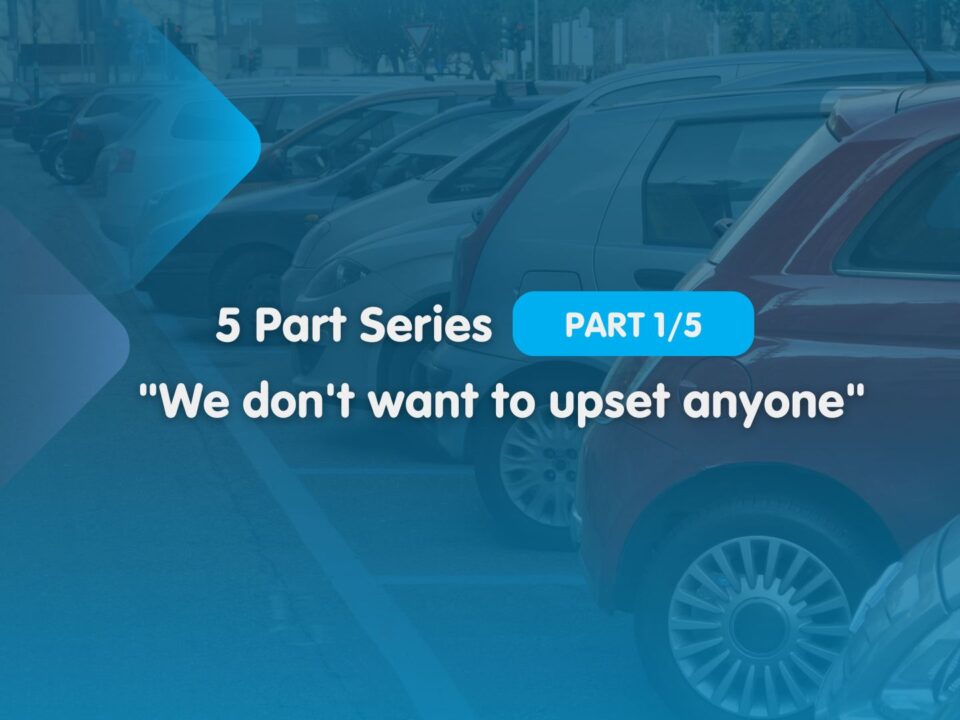Part 2. “But It’s Our Land”

Part 1. “We don’t want to upset anyone”
17/07/2025
Part 3. “We’re not looking to make money”
17/07/2025"But It’s Our Land"
Staying in control while getting the right kind of support
You can always sense the moment.
Things are going well, the discussion is open, honest — maybe even hopeful.
There’s talk of problems, yes, but also possible answers.
A sense that something might actually change for the better.
Then it shifts.
Not abruptly.
Just a pause, a careful word, the kind of glance that asks for reassurance without really asking at all.
“We just want to be careful…”
Or maybe,
“The thing is, it’s our land…”
And everything settles into a different gear.
Because ownership, responsibility, stewardship —
whatever word you choose, it comes with a weight.
A feeling that the land, the space, the car park, is not just a resource.
It’s something you’ve looked after, maybe for years.
It’s the product of decisions made, money spent, relationships built.
You know its quirks.
You remember the stories — who used to park where, which spots get icy first, how things used to be before the pressures crept in.
So when someone suggests bringing in “outside help,” the mind races ahead.
You picture what might change.
Will the signs look wrong?
Will the tone feel off?
Will you wake up one morning and find the place is no longer yours,
but a set of rules, letters, warnings — handed down, not chosen?
That’s the fear, if you put words to it.
That the solution becomes a new problem.
That, in trying to fix misuse, you lose the spirit of the place.
But maybe it’s worth pausing there —
and asking what help can look like, if it’s done differently.
Because there are ways.

The first, and maybe most important, is this:
Support doesn’t have to mean giving up control.
In fact, it shouldn’t.
The right kind of support is a tool, not a takeover.
It’s an extra set of options for you to draw on when you need them.
Not someone stepping in to make the rules for you, but someone listening — really listening — to what matters most about your space.
Some people want to keep things as close as possible.
Self-ticketing suits them.
You’re the one who decides what counts as unauthorised.
You hold the app; you choose if and when to act.
You can let things go, or draw the line, or change your mind if new information comes in.
Nothing happens unless you say so.
No drama, no paperwork you didn’t ask for, no strangers patrolling.
Others want the lightest touch.
Just signage — clear, legal, enough to set expectations but not enough to change the feel of the place.
You’re still the one in charge, but if you ever need to enforce, you can.
Until then, it’s just a reassurance.
A silent sign to others:
This is a managed space.
There are rules here, but they’re ours.
And sometimes, yes, you need more structure.
ANPR cameras, exemption lists, time limits for visitors or deliveries.
But even then, it’s about shaping things so they fit.
The signs match your style.
The grace periods reflect your generosity.
If a local business should be exempt, that can be set up.
If a resident worries about family visits, there’s a way to keep things flexible.
It’s still your land.
Every part of the process can reflect that —
from how you welcome people in,
to the way you handle appeals,
to the little decisions that set the mood for the whole place.
When support works, it doesn’t crowd you.
It doesn’t take things out of your hands.
Instead, it lets you do more of what you want, and less of what you don’t.
You get to spend less time refereeing arguments, or chasing cars that shouldn’t be there, or fielding complaints from neighbours.
You get to spend more time doing whatever you came here to do — running the business, looking after residents, building something that lasts.
And if you’d rather keep things informal for now, or hold enforcement in reserve, that’s fine too.
The point isn’t to take over.
It’s to make sure you’re never forced into a corner, never pushed to do more than you want, never asked to hand over the keys.
Download the Landowners' Guide to Profitable Parking
In the end, control isn’t about holding tightest.
It’s about knowing you have choices.
Knowing you can act, or not, and either way, the decision is yours.
Support should feel like just that — support.
Not another pressure, not a new set of rules, but a structure that stands behind you, ready if you need it.
That’s the part that sometimes gets missed when people picture car park enforcement.
They imagine letters, penalties, bureaucracy, a heavy hand.
But when it’s done with care, it feels nothing like that.
It feels more like a safety net.
A way to keep things as you want them —
not because you’re required to, but because you can.
So yes.
It’s your land.
It should feel like it, every day.
The right support doesn’t replace that, it restores it.
People come and go, and the place keeps its character.
Your voice is the one that matters.
You set the tone, and everything else follows.
If you ever need to press a button, you know it’s there.
But most days, you won’t.
And that, really, is the best kind of control —
the kind you barely have to think about at all.
Continue the Series
- 17/07/2025
Part 5. “We’re not sure everyone will agree”
What Holds People Back from Car Park Management? PT. 5/5: How to win over a committee for your car park.
Read more - 17/07/2025
Part 4. “We tried this before”
What Holds People Back from Car Park Management? PT. 4/5: Why your parking management went wrong: and what can be done differently .
Read more - 17/07/2025
Part 3. “We’re not looking to make money”
What Holds People Back from Car Park Management? PT. 3/5: What car park management controls look like when revenue isn’t the goal.
Read more - 17/07/2025
Part 2. “But It’s Our Land”
What Holds People Back from Car Park Management? PT. 2/5: Staying in control while getting the right kind of support.
Read more - 17/07/2025
Part 1. “We don’t want to upset anyone”
What Holds People Back from Car Park Management? PT. 1/5: Why sensible car park management controls don’t have to feel harsh.
Read more

